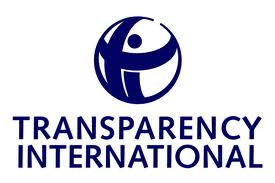 ALL SECTORS OF SOCIETY MUST INCREASE LEVELS OF TRANSPARENCY TO STRENGTHEN PEOPLE’S TRUST IN INSTITUTIONS AND PUBLIC OFFICIALS
ALL SECTORS OF SOCIETY MUST INCREASE LEVELS OF TRANSPARENCY TO STRENGTHEN PEOPLE’S TRUST IN INSTITUTIONS AND PUBLIC OFFICIALS
There is a general lack of trust in Curaçao’s key institutions, the anti-corruption group Transparency International said in a report published today. This is a major obstacle for strengthening the foundations of this new country and will limit the success of any programme addressing corruption and promoting good governance.
Curaçao’s National Integrity System assessment — a study of the island’s most important institutions for fighting corruption, promoting transparency, increasing accountability and good governance — was undertaken over the past year and found the public sector, political parties and the media were the weakest links in the island’s ability to combat corruption.
To increase the level of trust it is necessary to ensure proper procedures and instil integrity into the country’s institutions. This means guaranteeing adequate accountability provisions that include whistleblower protection mechanisms, and by enhancing transparency across all sectors of society.
“Corruption is not an isolated phenomenon and fighting it requires all institutions, sectors and people working together to stand up and put an end to impunity for corruption. Effective prevention of corruption is the responsibility not just of leaders but of all citizens of Curaçao”, says Alejandro Salas, Transparency International’s Regional Director for the Americas. “People need to know their rights and hold their elected politicians accountable.”
The National Integrity System assessment reveals that political parties in Curaçao do not function well in all aspects. There is a potential risk of dominance of party discipline over governance both among members of Parliament as well with the Executive. This can hinder the independence of both institutions and, worryingly, blurs the separation of power as laid out in the Constitution. In addition, the legislature does not make full use of the oversight instruments at its disposal to hold the Executive to account.
In contrast to political parties, the judiciary, the Ombudsman and the supreme audit and supervisory institutions score relatively well in the Curaçao National Integrity System assessment. The research shows that they are largely independent and considered adequately resourced. Thus, they have the potential to create an effective system of checks-and-balances over the public, private and social sectors of the country and serve as a key defence against those that repeatedly get away with acts of corruption. However, this potential is undermined by weaknesses identified in other sectors and areas.
The study illustrates broad concerns about some sectors that should promote integrity. An example of this is the media. While the legal framework provides an environment which is conducive to the development of a diverse media landscape, the reality is that there are not enough trained journalists, especially investigative journalists. The content of media reports is at times influenced by the fact that many media companies are heavily dependent on private financiers and the advertising market for their income. Requirements to ensure the integrity of media employees are scarce. This undermines the independence and the accountability of the media.
Transparency International’s Curaçao National Integrity System assessment clearly shows that although the legislative framework is fairly strong on the island, there are some considerable gaps between law and practice in many areas, such as the Parliament and the Executive. In numerous cases, existing legislation is not applied consistently in practice, and those who are responsible for the execution of the laws, or are required to comply with them, do not always know how to do so. This is particularly true with regards to transparency, where much of the information which is legally required to be made public, such as implementation reports, personnel decisions, and other administrative decisions, are not consistently or systematically published.
Based on the findings of the Curaçao National Integrity System assessment, Transparency International recommends the following:
- Curaçao must ratify the United Nations Conventions against Corruption as a matter of urgency and develop an action plan to ensure its implementation and enforcement.
- All sectors of society must strive to increase the levels of transparency in their activities, internal procedures and funding sources. Given the pivotal role played by political parties in the Curaçao National Integrity System, the transparency of political party financing requires particular attention.
- The Government should prioritise funding and capacity building of law enforcement agencies to enable them to effectively conduct investigations and follow-up on cases put forward by Curaçao’s oversight agencies (the judiciary, the Ombudsman and the supreme audit and supervisory institutions).
- The Executive must work to ensure greater independence and accountability of the public sector. This entails ensuring that principles of proper administration are followed and that all internal mechanism to ensure accountability and integrity are in place. Compliance with these mechanisms must be monitored and sanctions imposed where necessary.
